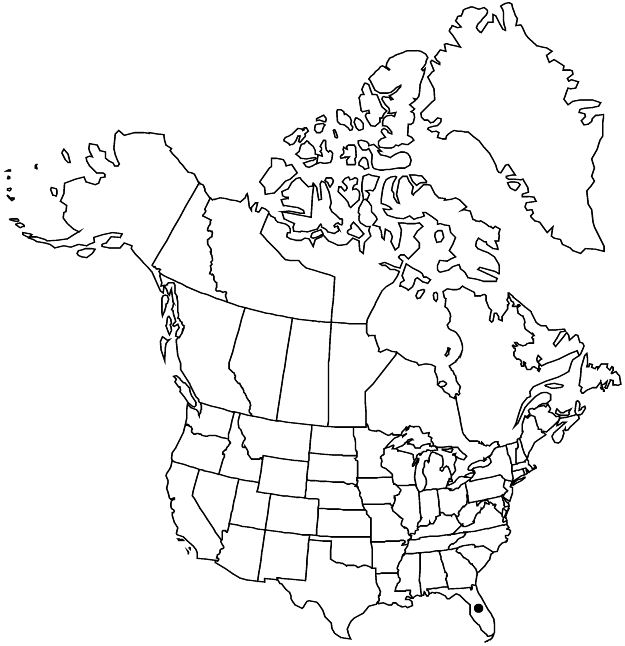Difference between revisions of "Hibiscus poeppigii"
Jahresber. Naturwiss. Vereins Halle 2: 133. 1850.
imported>Volume Importer |
imported>Volume Importer |
||
| Line 53: | Line 53: | ||
|publication year=1850 | |publication year=1850 | ||
|special status= | |special status= | ||
| − | |source xml=https:// | + | |source xml=https://bitbucket.org/aafc-mbb/fna-data-curation/src/2e0870ddd59836b60bcf96646a41e87ea5a5943a/coarse_grained_fna_xml/V6/V6_461.xml |
|subfamily=Malvaceae subfam. Malvoideae | |subfamily=Malvaceae subfam. Malvoideae | ||
|genus=Hibiscus | |genus=Hibiscus | ||
Latest revision as of 22:21, 5 November 2020
Subshrubs to 1.8 m, herbage with appressed-stellate pubescence throughout. Stems additionally with line of fine, curved, simple hairs extending from node to node and decurrent from leaf base; older twigs brown or greenish brown to gray. Leaves: stipules narrowly triangular, 2–4.5 mm; petiole mostly 1/4–3/4 blade, with line of fine, curved hairs adaxially; blade broadly ovate to transversely broadly ovate, usually 3-lobed or 3-fid, mostly 1.2–4.5 × 1.2–4.3 cm, base cordate to truncate, rarely broadly cuneate, margins irregularly crenate to serrate, apex obtuse to broadly acute, apex of lateral lobes obtuse or broadly acute, surfaces scabridulous, hairs appressed-stellate, nectary present abaxially at base of midvein. Inflorescences solitary flowers in axils of distal leaves. Pedicels jointed beyond middle, 2–5 cm, exceeding petioles and sometimes blades; involucellar bractlets 9–11, linear to narrowly oblanceolate or subulate-linear, 0.5–0.9 cm, margins not or indistinctly ciliate. Flowers nodding or pendulous; calyx divided ± 1/2 length, narrowly campanulate, 0.7–1.2 cm, exceeding involucel, lobes narrowly triangular-ovate, apices acute or short-acuminate, nectaries absent; corolla narrowly funnelform, petals bright red [pink], broadly oblanceolate, ± convolute, 1.5–2.6[–3.5] × 0.4–1.2 cm, margins ± entire, sparingly hairy abaxially where exposed in bud; staminal column exserted, straight, bright red, 1.8–3.4 cm, bearing filaments on distal 1/2, free portion of filaments not secund, 2–3 mm; pollen dark orange; styles red, 1–3.5 mm; stigmas red. Capsules dull brown, ± globose, 0.9–1.1 cm, equaling or surpassing calyces, apex apiculate, coarsely stellate-hairy. Seeds brown, angulately reniform-ovoid, 2–2.6 mm, pale silky-hairy ± throughout. 2n = 22 (Jamaica).
Phenology: Flowering winter–summer.
Habitat: Open thickets and hammocks, limestone-derived soil
Elevation: 0–10 m
Distribution

Fla., e, se Mexico, West Indies (Cuba, Jamaica), Central America (Guatemala).
Discussion
Hibiscus poeppigii has been called H. pilosus (Swartz) Fawcett & Rendle (for example, J. K. Small 1933; R. W. Long and O. Lakela 1971), a name that pertains to a species of Malvaviscus. In the flora area, H. poeppigii is confined to Miami-Dade and Monroe counties; it has been erroneously cited from mid-peninsular Florida on the basis of a mislabeled specimen. The floral characteristics suggest hummingbird pollination.
Selected References
None.